Spanish people are among the most avid mineral water drinkers on Earth. You may hear them discussing and comparing mineral water brands in cafés, restaurants, and while fine dining.
And that makes sense — Spain has some of the best mineral water brands on the market, thanks to the unique geological character and silica-rich aquifers of the Catalonia region. The country has produced some of the best and sweetest bottled mineral water since the late 19th century.
But which brands take the cake?
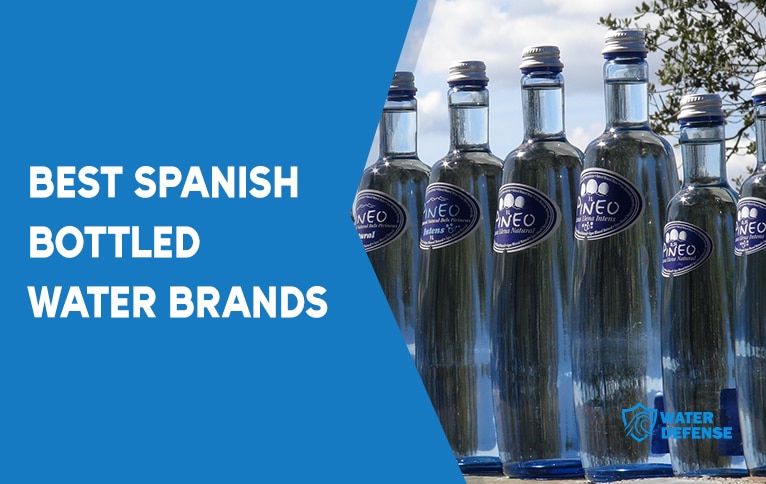
We made our foray into the Spanish market and put together a list of Spanish brands that are absolutely world-class. Our list includes the best mineral and spring water brands from Spanish lands!
1. Vichy Catalan
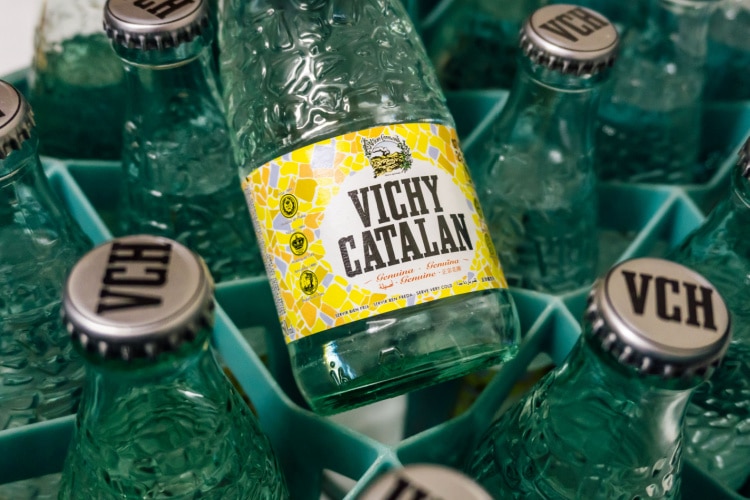
Vichy Catalan is a famous and pioneering bottled mineral water brand from the Catalonia region. Sourcing its water from two prolific springs in Caldes de Malavella, the brand has been on the global market for 140 years.
The springs’ discovery is attributed to a doctor, namely Modest Furest Roca, who was the first to bottle the Vichy Catalan water and sell it in Europe. The doctor believed the water had healing properties.
However, before Modest Furest Roca, the region’s locals already believed in the healing power of these springs.
And we now know that Vichy Catalan is indeed healthy, mainly thanks to the water’s temperature of 60°C (140°F) and its natural carbonation. Nowadays, the brand collects the gas and water separately and blends them before bottling to standardize quality.
In addition, unlike other mineral water brands, Vichy Catalan is fairly low on calcium and magnesium despite having 2,900 mg/L of total dissolved solids. Instead, it contains an abundance of potassium (51 mg/L) and chloride (584 mg/L). Both electrolytes are associated with essential activities within our bodies, including nerve function and heartbeat regulation.
The water also has an alkaline pH of 8, which makes it a potent antioxidant and a natural fighter against acid reflux.
As a side note, Vichy Catalan is an excellent non-alcoholic companion beverage to steak.
2. Pineo
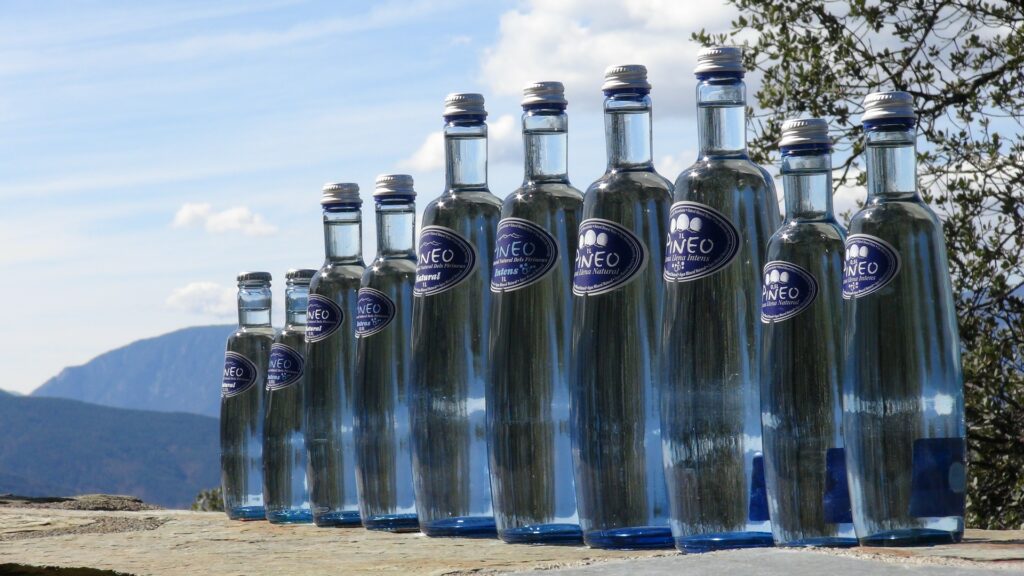
Pineo, another Catalonia-based bottled water brand, emerges from the Spanish Pyrenees at an altitude of 1,500 meters (4,921 feet). The rugged terrain is more friendly to wildlife than industrial activities and human populations, so the water source has remained untouched for almost an eternity.
Back in the day, locals believed the Pineo Springs were sacred places, so you won’t be surprised to learn that there’s a monastery ruin nearby, hanging on the rocks: Monastir Sant Vicenç de Pinsent. A depiction of this monastery appears on the brand’s unique bottle design.
Fast forward to present times — the brand shows respect for the beauty, integrity, and generosity of nature around the springs and its ecosystem. It only uses naturally occurring hydraulic pressure to collect this mineral-rich spring water from an artesian well.
When Pineo is bottled, it has 223 mg/L of total dissolved solids. Calcium is the mineral most prominent in its makeup, with 79 mg/L. The water also has 5.1 mg/L of silica, giving it a hint of sweetness.
With a pH of 7.9, the water is slightly alkaline. Its low mineral content and alkaline nature make it an excellent companion to chicken dishes.
3. 22 Artesian Water
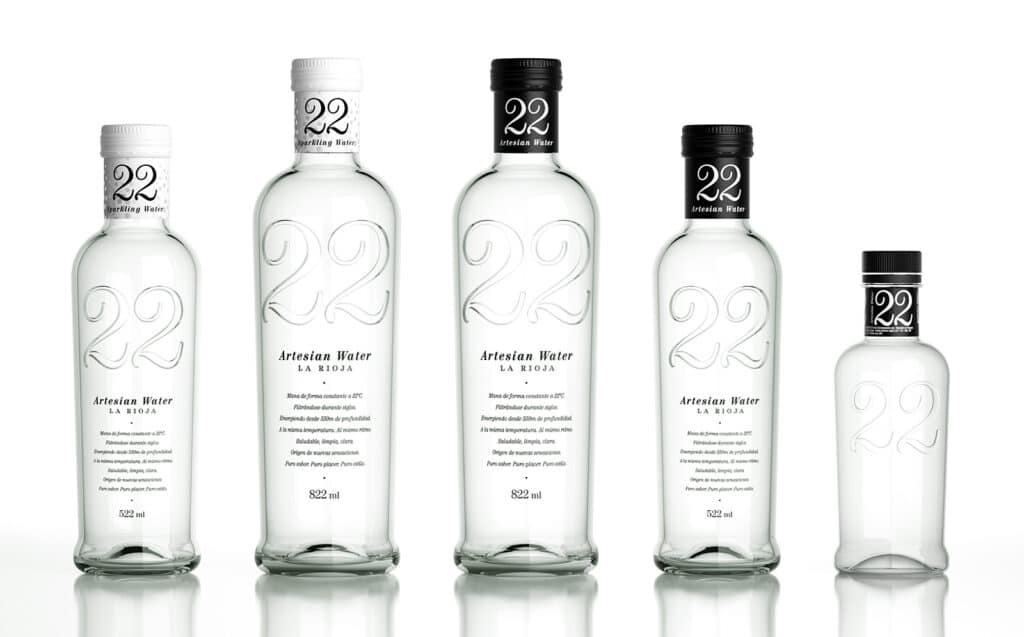
22 Artesian Water originates from northern Spain, also known as La Rioja, near the majestic Peñaseto mountain. The area is away from human habitation, and its geography is not industry-friendly, so the water at La Rioja has remained pure.
The water there also journeys through unique geological strata of loams, sandstone, and clay for over 150 years. During its journey, the underground rock formations absorb and filter potential impurities.
Since these geological formations are rich in essential minerals, 22 Artesian Water also has a high total dissolved solids count of 663 mg/L. While calcium is its top mineral with 142 mg/L, it’s also rich in silica with 29 mg/L, which gives it a smooth texture and slightly sweet savor.
When bottled, the water has a neutral pH of 7.6.
All these properties make 22 Artesian Water a healthy drinking water choice. In the 1800s, the water was considered medicinal, sold in chemist stores in ceramic bottles and in a spa and therapeutic center near its spring.
4. Sant Aniol
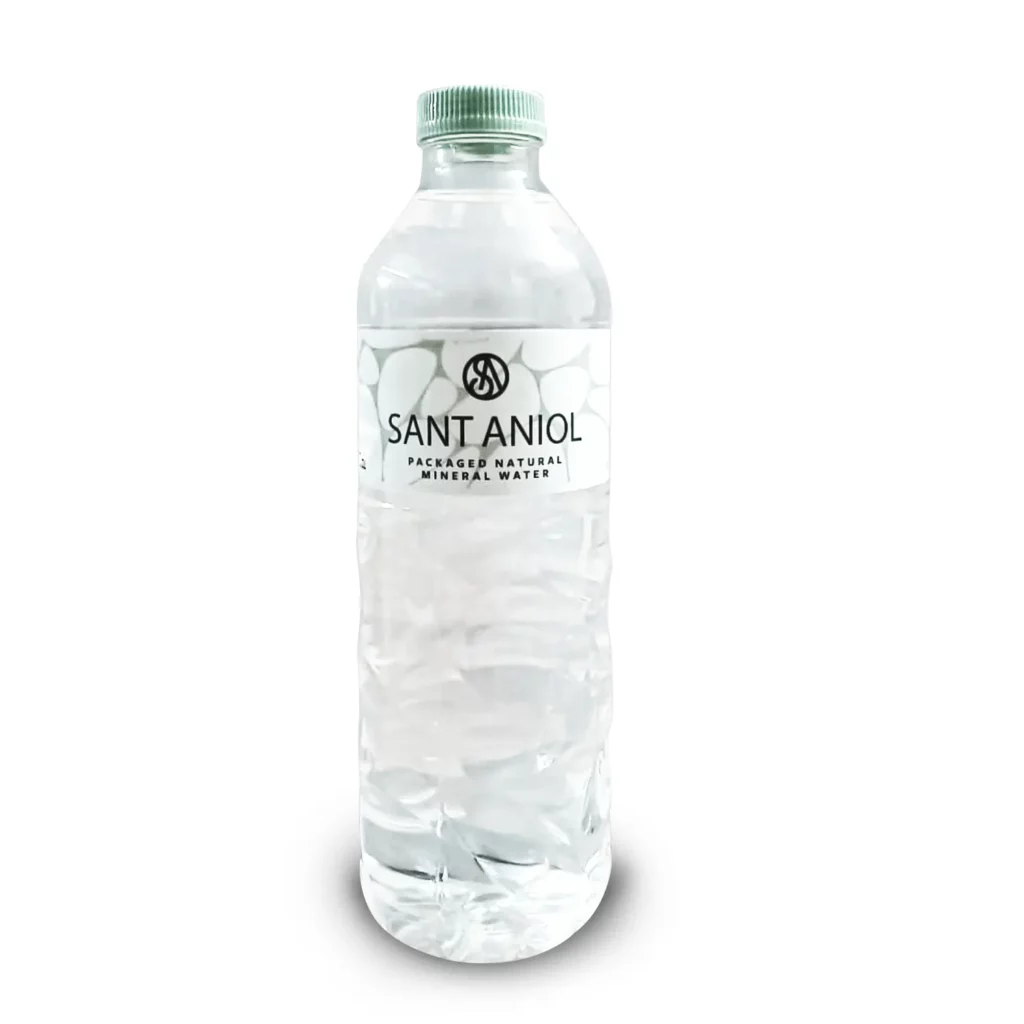
Sant Aniol is yet another high-quality bottled water brand rising from the remarkable geography of Catalonia. It’s a small, family-owned business emphasizing sustainability and green energy.
This time, the source is located in a small village, La Garrotxa, in Girona, but it’s well protected from human or industrial interference through an exclusion zone set by the local government.
The water’s 60-year journey takes place through cooled volcanic rocks. Other geological formations it passes through are humus (a sublayer made of organic plants), andesita (a mineral-rich igneous rock formation), and pozzolan (that has natural filtration characteristics).
So, when the water emerges in a crack 115 meters below the surface, it’s completely filtered from potential impurities and imbued with rich and unique mineral content. The end product has 323 mg/L of total dissolved solids, 91 mg/L of calcium, 11 mg/L of silica, and 17.5 mg/L of magnesium. Its pH value of 7.4 is neutral.
You’ll be glad to know that the brand is a member of the Fine Water Society and has received awards for the taste of its product. Sant Aniol is also a top choice of many chefs in Michelin-rated restaurants.
5. Aigua de Vilajuïga
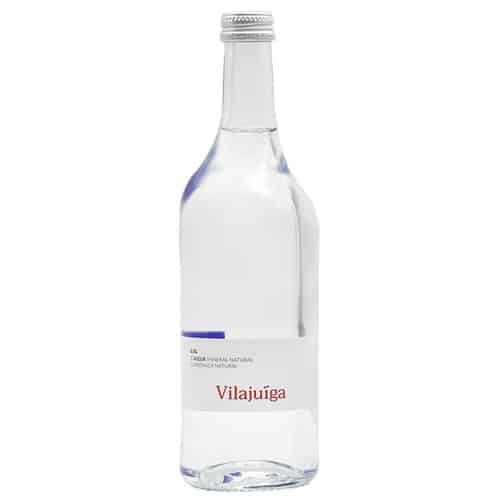
Aigua de Vilajuïga is a naturally carbonated (also known as sparkling or bubbly) bottled water brand from the Cap de Creus Natural Park located in – yes, you guessed it, Catalonia. Since the source is inside a natural park, it’s protected from external contamination.
Thanks to the minerals it picks up during its 30-year underground journey, the water is considered organoleptic (meaning it awakens the senses due to its distinct taste). Its sparkling qualities and smooth texture make it a great white wine pairing.
Calcium, magnesium, lithium, and sodium are the most prominent minerals in its makeup. While the first three are good for our health, we should warn people with cardiac conditions that drinking high-sodium mineral water isn’t good for them because it increases the risk of cardiac arrest.

Living in Southern Spain and would like to learn about water purification for drinking, etc. I’m on the southern coast amongst the mountains and farmers growing on the mountains. The alluvial surfaces allow for drilling and irrigation that results in acres of mountainside growing. Avacados, olives and almonds to mention a few are grown here. Let me know if you’ve any helpful insights. Oh, and our well is county run.